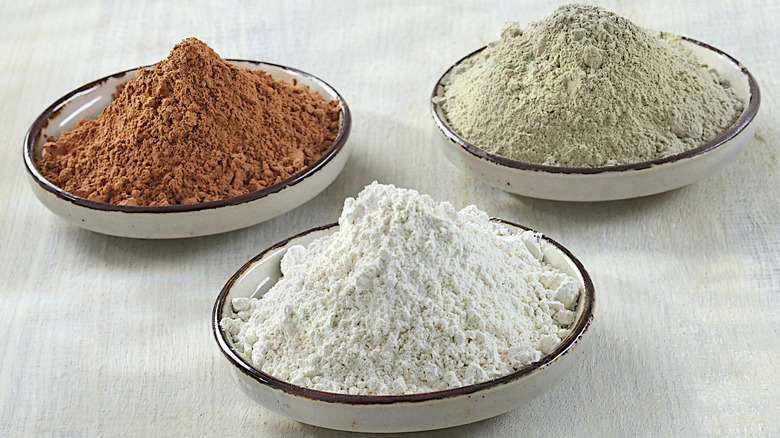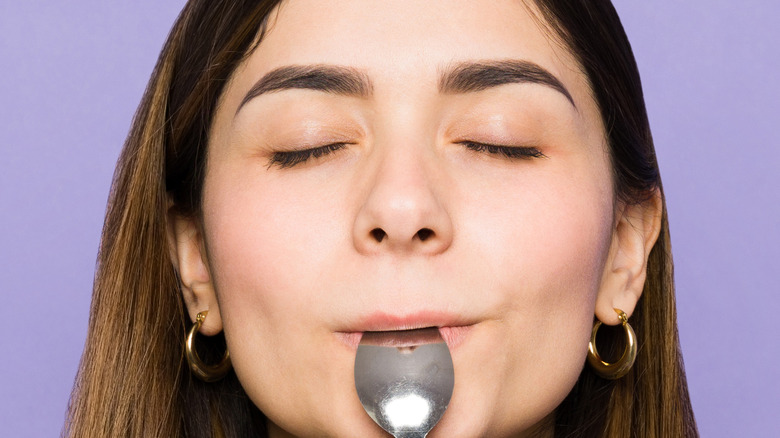What It Really Means When You Want To Eat Clay
Are you craving clay or dirt? No matter how strange it may seem, eating clay is common in Africa and other parts of the world. This practice, which is known as geophagia, might have an evolutionary basis, notes Scientific American. Humans have been eating clay soils since 460 BC, and many still do it today. This behavior may be due to our need for iron, calcium, and other essential minerals that occur naturally in soil, not just in food. For example, clay cravings are more common during pregnancy when the body needs calcium to form the baby's bones.
The Medical University of Vienna reports that up to 80% of the African population consumes clay regularly. "These people often eat clay as a snack between meals and report that they could not do without it," says medical anthropologist Ruth Kutalek. Researchers don't fully understand the cause, but they believe it might have something to do with the nutrients in the soil.
One theory is that clay absorbs and removes toxins from the body, preventing diarrhea and other ailments. A good example is bentonite clay, which binds to heavy metals and boosts your immune system, explains a 2017 review published in the Iranian Journal of Public Health. Moreover, it may increase nutrient absorption into the body and improve kidney function.
But what does it mean when you want to eat clay? Could it be a sign of nutrient deficiencies?
The real reason you're craving clay
Geophagia, or the practice of eating clay, is a form of an eating disorder called pica, explains a 2002 review featured in the Journal of the Royal Society of Medicine. Individuals who have this condition may crave ice, dirt, paint, and other substances with little or no nutritional value. Geophagia seems to be more common among people living in urban Africa and the southern part of the U.S., but it also tends to occur in those with learning disabilities or anorexia.
In some cultures, people eat clay for health or beauty purposes. For example, South African women believe this practice can soften and brighten their skin, notes the above review. In the Western world, clay is promoted as a natural detoxifying and antibacterial agent, according to clinical research published in the Iranian Journal of Public Health. Studies indicate that it may help remove lead, copper, cadmium, and other heavy metals from the body.
Food-grade clay has potential health benefits, but that's not the case with clay-like soils, which may contain parasites, toxins, and other contaminants, warns WebMD. Additionally, this substance can reduce zinc and potassium absorption into your system, leading to nutrient deficiencies. It also seems to affect potassium levels, which may result in electrolyte imbalances, according to a 2006 case report published in Pediatric Emergency Care. Given these risks, it makes sense to consult your doctor and fill up on whole foods to get more minerals in your diet.


